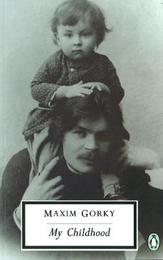
|
My Childhood
Paperback / softback
Main Details
Description
Coloured by poverty and horrifying brutality, Gorky's childhood equipped him to understand - in a way denied to a Tolstoy or a Turgenev - the life of the ordinary Russian. After his father, a paperhanger and upholsterer, died of cholera, five-year-old Gorky was taken to live with his grandfather, a polecat-faced tyrant who would regularly beat him unconscious, and with his grandmother, a tender mountain of a woman and a wonderful storyteller, who would kneel beside their bed (with Gorky inside it pretending to be asleep) and give God her views on the day's happenings, down to the last fascinating details. She was, in fact, Gorky's closest friend and the epic heroine of a book swarming with characters and with the sensations of a curious and often frightened little boy. My Childhood, the first volume of Gorky's autobiographical trilogy, was in part an act of exorcism. It describes a life begun in the raw, remembered with extraordinary charm and poignancy and without bitterness. Of all Gorky's books this is the one that made him 'the father of Russian literature'.
Author Biography
Maxim Gorky was born in 1868 in Nizhny Novgorod. After a grim childhood and some years of wandering he began to write stories and by his thirties had become famous both for fiction and plays. He became involved in revolutionary activity against the tsarist regime in Russia and had a confused, difficult relationship with the Soviet dictatorship, partly living abroad and yet becoming the USSR's most feted and widely read author. He died in 1936 under suspicious circumstances and Stalin and Molotov were among the bearers of his coffin.
|